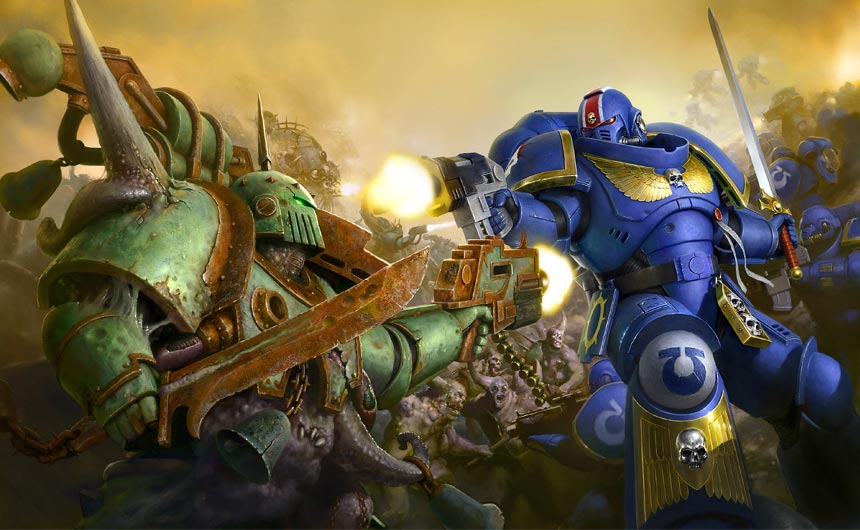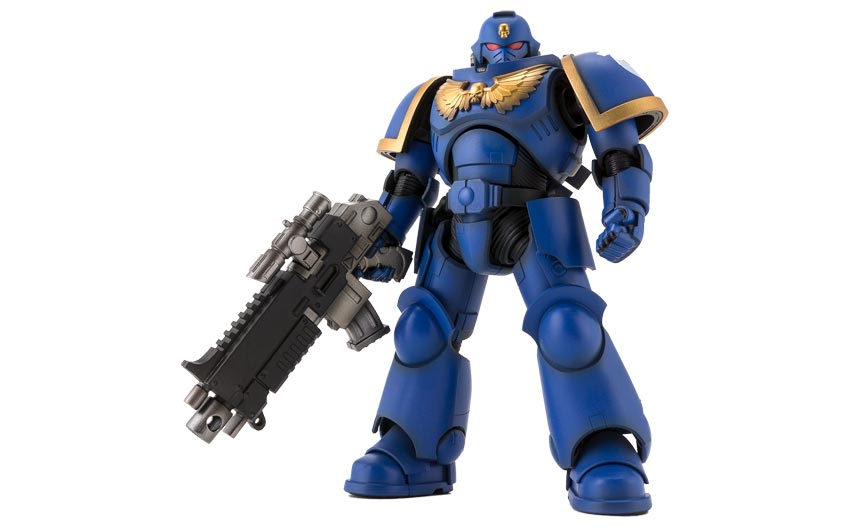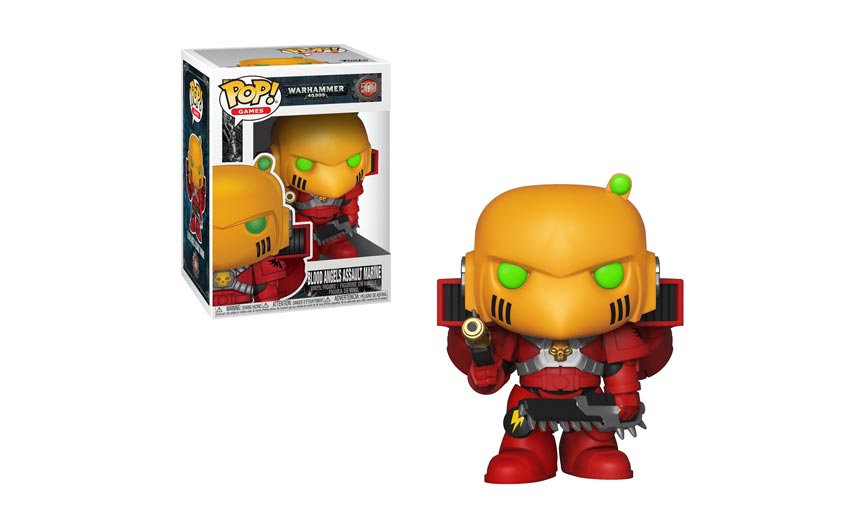It enjoyed its biggest ever year for licensed products in 2019 but, as Source discovers, this is just the tip of the iceberg.
Games Workshop headed into 2020 on a high. 2019 was a record-breaking year for the company – FY19 saw it achieve £257 million in sales and £81 million in profit, with its business having doubled in just three years. It also enjoyed a £1.9 billion market capitalisation on the London Stock Exchange and was the fastest growing share since 2016.
2019 was also the biggest ever year for Warhammer licensed products, with retail sales of £104 million. It signed 21 new partners, bringing the total number of licensees to 94. Indeed, such is the growth in awareness of the Warhammer name with customers and fans, the decision was made last year to use it for all the licensing work, with Games Workshop continuing to be the name of the public company.
“All in all, 2019 was very successful,” says Zoe Smith, senior licensing manager. “We had some great launches with our first range of Funko Pop! – which won the Community Choice Award at the Licensing International Excellence Awards – and our first ever action figure from Bandai which sold out in just 48 hours.
“We had some really exciting announcements – a live action TV series in development and our partnership with Marvel for Warhammer Comics. We also had our first ever nomination in The Licensing Awards, demonstrating how we are engaging with the licensing industry now more than we ever have. We also had an extremely successful BLE after launching a bigger stand with new branding.”

The company is also developing stronger relationships at retail, with Zoe citing Barnes & Noble as a good example which increased its buy to 14 skus for 500+ stores after initial success with three Games Workshop board games.
All of this certainly bodes well for further success in the licensing arena going forward. “In certain categories such as miniatures and computer games, Warhammer is a household name, however we have aspirations to also be a household name in consumer products, entertainment and the broader market as a whole,” Zoe explains.
Following on from the successes with Bandai and Funko, action figures and collectables are growing categories for Warhammer. In addition, apparel – with partners such as Difuzed – and housewares – with Half Moon Bay – are a key focus as the brand builds its presence at retail.
Zoe continues: “We always get asked for plushies from our fans so we will be looking for new partners to introduce this category. We are also looking to expand on the collectables category, too. Our apparel range has been fairly concise so far and, therefore, we are looking at ways in which we can grow this and offer more options for our fans including multiple design directions and nightwear.
“We have an incredibly strong and growing younger fan base due to a number of initiatives including our fantastic school programme Warhammer Alliance, and our sponsorship of the model making scouts badge, so back to school – in particular stationery – is an obvious category to develop.”

In addition to this, the first fruits of the deal with Marvel Entertainment for comics and graphic novels will be launching in Q3/Q4 2020. Collaborations such as these are key to helping to build the brand, says Zoe.
“Working with Marvel is hugely exciting as it puts Warhammer alongside another premium brand, and is a great example of our strategy to work with best in class partners in all categories,” she says. “Our core business activity of hobby miniatures and table top war games is always going to be a niche market, so partnerships like this show the appetite there is for the Warhammer brands in other categories, markets and products.”
Ultimately, Zoe believes there is still huge growth for Warhammer as a brand and that there is so much potential from a licensed products point of view.
“Warhammer fans are passionate and loyal, so all we need to do is put the products in front of them for those products to be a success,” Zoe offers. “Longer term, we would love to see Warhammer available to a much broader audience through new retail channels. We expect to have a lot more entertainment out there – live action, animation – and to use those as a platform to service the audience that those bring us with more and more of the products they expect and want. All the while growing our core business and audience by opening more and more of our own retail stores, particularly in North America and Asia, unlocking huge new audiences.”
Zoe concludes: “While we are a £2bn company, Warhammer is only just getting started.”

Need to know: Games Workshop and Warhammer
Games Workshop is the largest and most successful hobby miniatures company in the world. It was founded in 1975 by three game fanatics who began selling handmade, classic wooden games from their homes in London before going on to develop a chain of general games shops.
In 1981, Games Workshop helped to found Citadel Miniatures Limited, a manufacturer of metal miniatures based in Nottinghamshire. A few years later, the company moved closer to Nottingham and began to develop and expand, producing a wealth of miniatures, kits and books. This remains its head office to this day, as well as being its visitor centre, ‘Warhammer World’, and gaming hall.
Its major brands are Warhammer 40,000 and Warhammer Age of Sigmar, while it also holds a licence for the Lord of the Rings/The Hobbit tabletop battle game.
This feature originally appeared in the spring 2020 edition of Licensing Source Book. To read the full publication, click on this link.

































